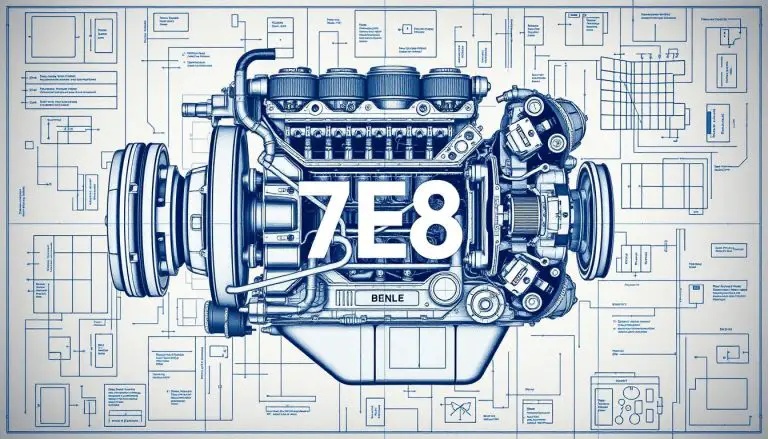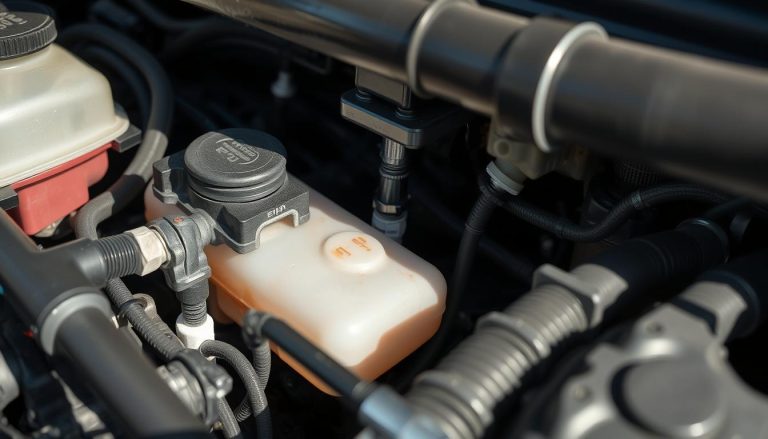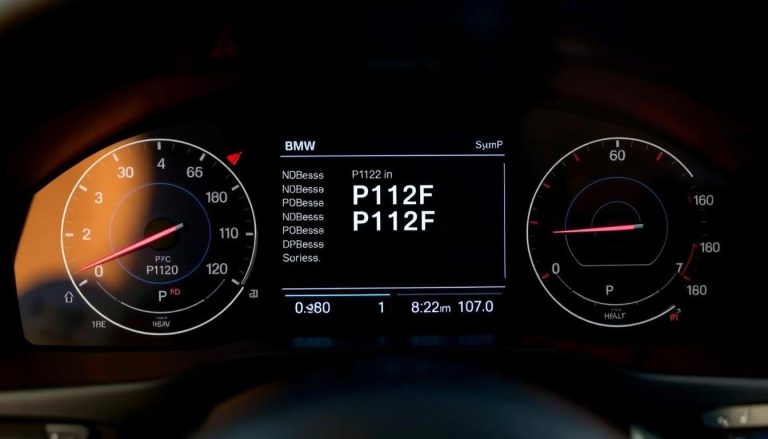When you’re cruising down the road and suddenly notice that pesky check engine light flickering to life, among the myriad trouble codes your vehicle might throw at you, the P0372 code often stands out as a red flag. This code indicates there’s an issue with your timing reference signal, specifically that it’s not registering enough pulses.
If you’re scratching your head wondering what this means for you and your car’s performance, you’ve landed in the right place. We’ll dive deep into everything about the P0372 code—from its causes and symptoms to diagnosis and repair solutions.
What does the P0372 code mean?
The P0372 code is a diagnostic trouble code (DTC) that indicates a problem related to the timing reference high-resolution signal A. Essentially, it suggests that your engine’s computer isn’t receiving enough pulse signals from the crankshaft or camshaft position sensors.
These signals are crucial for the engine control module (ECM) to accurately determine the position of the pistons and valves. When these pulses are too few, it can disrupt proper timing, leading to poor engine performance.
This code typically arises in modern vehicles equipped with advanced ignition and fuel injection systems. The ECM relies on consistent feedback from various sensors to maintain optimal functioning. If there’s an issue in this chain of communication, you’ll likely see the P0372 code pop up during a routine scan or when you notice changes in your vehicle’s behavior.
What parts can be affected by P0372 code ?
The P0372 code can affect several key components within your vehicle’s engine management system. Primarily, it relates to the crankshaft position sensor and camshaft position sensor. These sensors play a vital role in ensuring precise timing for ignition and fuel injection.
If either of these sensors malfunctions or is misaligned, it may lead to inaccurate signals being sent to the engine control unit (ECU). This disruption can cause performance issues and trigger the P0372 code.
Wiring harnesses connected to these sensors are also susceptible to wear or damage. Corrosion or frayed wires can hinder signal transmission, exacerbating the problem.
Additionally, problems with the ECU itself could arise if it’s unable to interpret data correctly due to faulty inputs from those sensors. Each part works harmoniously; when one falters, others may follow suit, leading you down a path of potential repairs.
What are the possible causes of a P0372 code?
The P0372 code often stems from several potential issues within the engine management system. A primary culprit is a faulty crankshaft position sensor. This component plays a critical role in providing accurate timing signals to the engine control unit.
Another possibility includes wiring problems, such as frayed or corroded wires connected to the sensor. Damaged connectors can hinder signal transmission, triggering this error code.
Additionally, a malfunctioning camshaft position sensor can contribute to an incorrect reading of engine timing. If both sensors fail to synchronize properly, it leads straight to trouble.
Sometimes, even software glitches in the vehicle’s computer may cause erratic signal readings that result in a P0372 code. Identifying these underlying causes is essential for effective troubleshooting and repair strategies.
What are the common symptoms of a P0372 code?
When your vehicle throws a P0372 code, certain symptoms may arise that can signal trouble with the timing reference. One of the most noticeable signs is difficulty in starting the engine. You might find yourself cranking it longer than usual.
Another common symptom includes rough idling. The engine may stutter or shake while at a standstill, indicating an issue with its internal timing.
You could also experience decreased acceleration response. When pressing on the gas pedal, instead of smooth acceleration, you might feel sluggish performance.
In some cases, the check engine light will illuminate on your dashboard. This warning serves as a prompt to investigate further before any serious damage occurs.
If you hear unusual noises from under the hood—especially around the timing components—it’s worth checking out right away to avoid escalating issues down the line.
What are the diagnostic steps for a P0372 code?
When diagnosing the P0372 code, the first step is to use an OBD-II scanner. This tool reads the vehicle’s computer and confirms if the P0372 code appears alongside any other trouble codes.
Next, examine the wiring and connectors related to the crankshaft position sensor. Look for signs of wear, corrosion or damage that could disrupt signal transmission.
Then, test the crankshaft position sensor itself. A multimeter can help check its resistance levels against manufacturer specifications.
Inspecting timing components like belts or chains is crucial as well. Any misalignment can lead to irregular readings from sensors.
Reviewing engine performance data during a scan can provide insights into potential issues affecting timing signals. By following these steps meticulously, you’re more likely to pinpoint the underlying problem effectively.
How serious Is the P0372 Code? Can I continue driving with the P0372 code?
The P0372 code indicates a timing reference issue related to the high-resolution signal. This could lead to problems with engine performance and efficiency.
Driving with this code can be risky. If your vehicle’s computer detects an irregularity in the timing signals, it may not perform optimally. You might notice reduced power or even stalling.
Continuing to drive under these conditions could exacerbate the problem, potentially leading to more significant damage over time. It’s wise to address it promptly rather than ignoring it.
While some drivers may experience minimal symptoms initially, it’s best not to take chances with engine health. Ignoring warning codes like P0372 can ultimately result in costly repairs down the line. Prioritize getting a proper diagnosis and keep your vehicle running smoothly for longer.
What are the repair solutions for a P0372 – Timing Reference High Resolution Signal A Too Few Pulses ?
Repairing the P0372 code involves several steps to ensure accurate resolution. First, it’s essential to inspect the crankshaft and camshaft position sensors. These components play a vital role in providing timing signals.
Worn or damaged connectors can lead to communication issues, so check for corrosion or loose connections as well.
If these parts appear functional, testing the wiring harness is critical. Look for shorts or breaks that may disrupt signal transmission.
In some cases, replacing faulty sensors is necessary. This ensures your engine receives correct positioning information for optimal performance.
Software updates may also rectify sensor-related problems if compatibility issues arise due to an outdated vehicle system.
After repairs are made, clear any diagnostic trouble codes and perform a test drive. Monitor how the engine behaves before concluding that repairs were successful. Each vehicle can vary significantly in required fixes based on its unique configuration and condition.
How long and How much does it cost to diagnose and repair a P0372 code?
Diagnosing a P0372 code typically takes 1 to 2 hours at an automotive repair shop. Technicians will use specialized diagnostic equipment to pinpoint the issue. Labor rates can vary widely, often ranging from $75 to $150 per hour.
Repair costs depend on the underlying cause of the fault. If it’s something simple like a loose connector, you might pay less than $100 for repairs. However, if it’s related to a malfunctioning timing sensor or issues with the engine control module, expenses could climb significantly.
Parts replacement may add anywhere from $50 for minor components to several hundred dollars for more complex parts. Total costs can fluctuate between $150 and over $500 based on diagnosis and necessary repairs. Always request an estimate before work begins so you know what to expect financially.
How can I avoid a P0372 code?
To avoid encountering a P0372 code, regular vehicle maintenance is key. Schedule routine inspections to ensure all components are functioning as intended.
Keep an eye on the timing system and related sensors. Any signs of wear or damage should be addressed immediately.
Using high-quality fuel can also make a difference in your engine’s performance and longevity. Low-quality fuel may cause misfires that contribute to timing issues.
Stay updated with software upgrades for your vehicle’s engine control unit (ECU). Manufacturers often release updates to improve performance and address known issues.
Pay attention to any dashboard warning lights or unusual sounds while driving. Early detection often leads to easier fixes and prevents more serious problems later on.
What happens if you ignore a P0372 code?
Ignoring a P0372 code can lead to various complications. The timing reference is crucial for your engine’s performance. If left unchecked, it may result in rough idling or stalling.
As the issue worsens, fuel efficiency could decline. You might notice increased consumption, impacting your wallet over time.
Moreover, prolonged neglect may cause damage to other components like the crankshaft or camshaft sensors. This can escalate repair costs significantly.
Driving with this code also poses safety risks. A failing timing system affects acceleration and overall control of the vehicle.
Continuing to operate your car without addressing a P0372 code can lead you down an expensive road filled with unexpected breakdowns and repairs that could have been avoided with timely attention.
Is the P0372 code specific to certain car makes or models?
The P0372 code is not exclusive to specific car makes or models. It can appear in a variety of vehicles, particularly those equipped with advanced engine management systems.
Many manufacturers utilize similar sensor configurations, which means that the underlying issue can be common across different brands. However, how the code manifests might vary based on the vehicle’s design and technology.
That said, some models may exhibit this error more frequently due to their specific hardware or software setups. Regular maintenance practices often differ among manufacturers, influencing how prone a model is to encountering this trouble code.
If you’re experiencing a P0372 code, it’s essential to consult your vehicle’s service manual or reach out to a professional mechanic familiar with your make and model for tailored advice.
What other codes may be related to P0372?
When dealing with the P0372 code, it’s essential to be aware of potential related trouble codes. These codes can provide further insight into your vehicle’s performance issues.
You may encounter codes like P0335, which refers to a crankshaft position sensor malfunction. This could indicate problems in the timing reference signals that might be linked to the same underlying issue as the P0372 code.
Another common code is P0340, indicating a camshaft position sensor problem. Just like with P0372, this could also lead you down a path of troubleshooting similar components or wiring harnesses.
Additionally, if you’re seeing multiple codes such as P0365 (indicating issues with a camshaft position sensor circuit), it’s crucial to address them together for effective diagnosis and repair.
Understanding these related codes helps create an accurate picture of what might be happening under your hood. Always ensure diagnostic tests are thorough and consider all possible connections between different error messages for optimal vehicle health.


